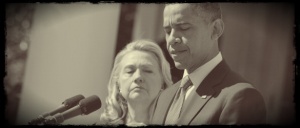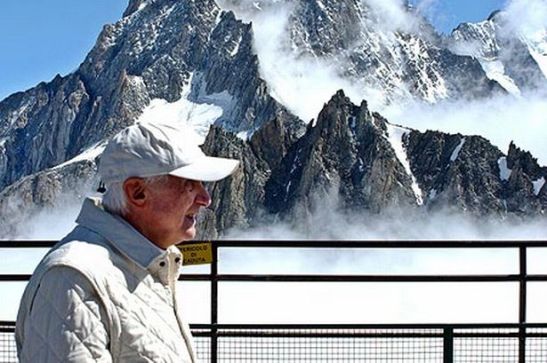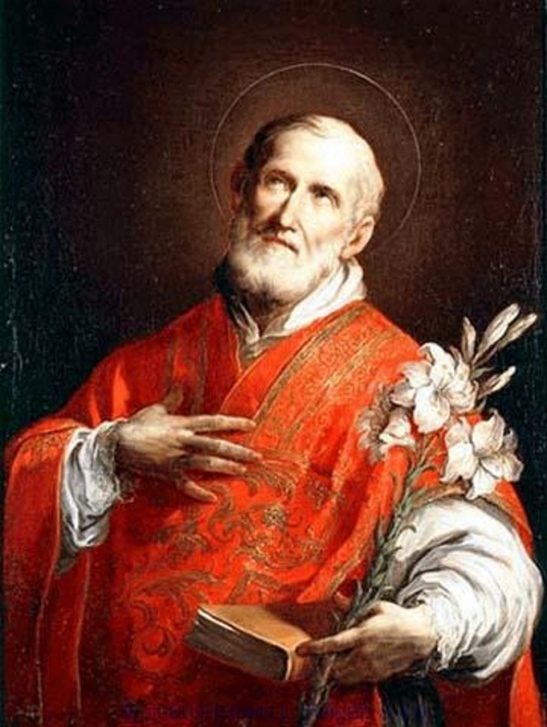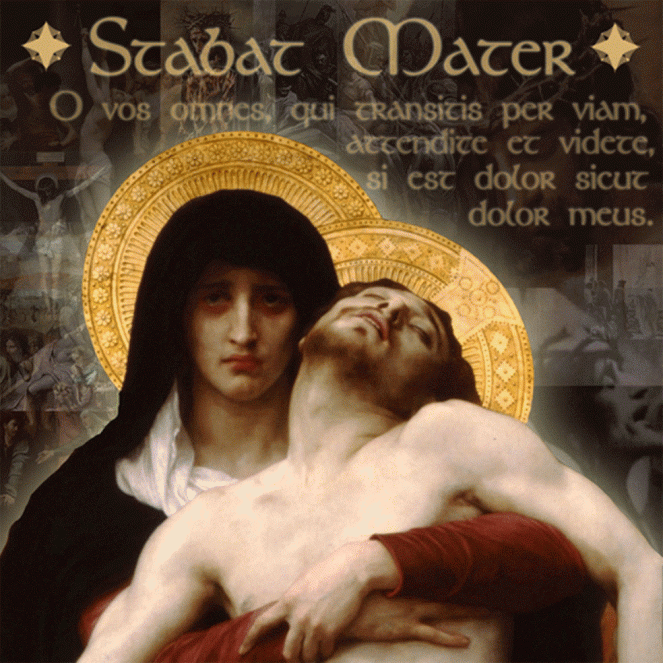The Reset: Exorcism Of The New World Order ~ The Laudato Si.

Center for The NWO ~ Is That Little [Red Dot] aka; Rothschild’s City Of London ~ Which Is A Banking Conglomerate Inside Greater London [Pale Yellow].
The City of London (not to be confused with Greater London) is a privately owned corporation operating under its own flag, with its own constitution and free from all legal constraints that govern the rest of us. This action paved the way for a private cartel of international bankers to embark on a plan of implementing world governance.” “How the City of London Controls World Power” an aricle from thedailybell.com
Every Icelander To Get Paid In Bank Sale: 26 Rothschild Bankers Behind Bars!
France Indicts David de Rothschild For Bank Fraud: Manhunt On As Judge Orders Police To Track Down Rothschild.


Divine Mercy
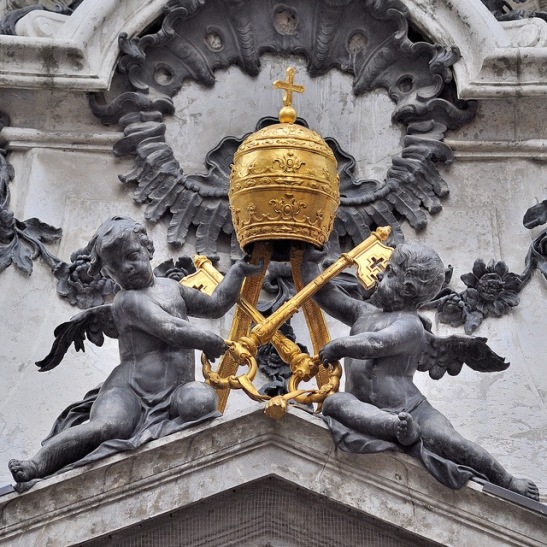
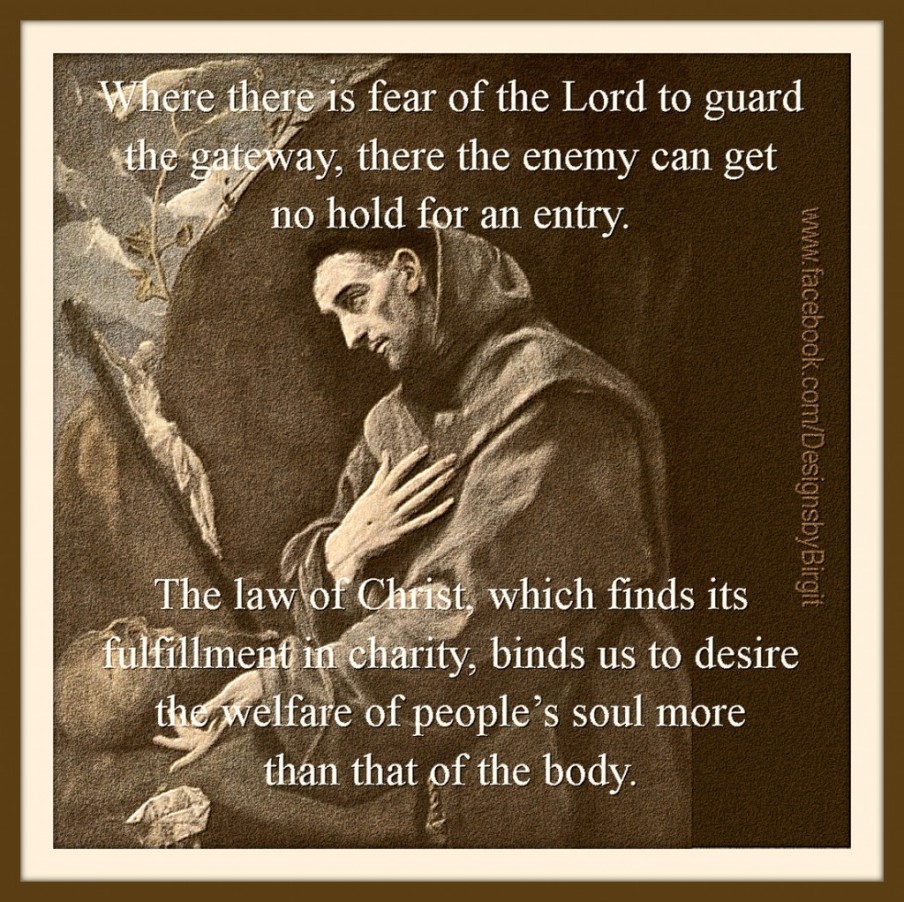
2. This sister now cries out to us because of the harm we have inflicted on her by our irresponsible use and abuse of the goods with which God has endowed her. We have come to see ourselves as her lords and masters, entitled to plunder her at will. The violence present in our hearts, wounded by sin, is also reflected in the symptoms of sickness evident in the soil, in the water, in the air and in all forms of life. This is why the earth herself, burdened and laid waste, is among the most abandoned and maltreated of our poor; she “groans in travail” (Rom 8:22). We have forgotten that we ourselves are dust of the earth (cf. Gen 2:7); our very bodies are made up of her elements, we breathe her air and we receive life and refreshment from her waters.

Nothing in this world is indifferent to us
3. More than fifty years ago, with the world teetering on the brink of nuclear crisis, Pope Saint John XXIII wrote an Encyclical which not only rejected war but offered a proposal for peace. He addressed his message Pacem in Terris to the entire “Catholic world” and indeed “to all men and women of good will”. Now, faced as we are with global environmental deterioration, I wish to address every person living on this planet. In my Apostolic Exhortation Evangelii Gaudium, I wrote to all the members of the Church with the aim of encouraging ongoing missionary renewal. In this Encyclical, I would like to enter into dialogue with all people about our common home.
4. In 1971, eight years after Pacem in Terris, Blessed Pope Paul VI referred to the ecological concern as “a tragic consequence” of unchecked human activity: “Due to an ill-considered exploitation of nature, humanity runs the risk of destroying it and becoming in turn a victim of this degradation”.[2] He spoke in similar terms to the Food and Agriculture Organization of the United Nations about the potential for an “ecological catastrophe under the effective explosion of industrial civilization”, and stressed “the urgent need for a radical change in the conduct of humanity”, inasmuch as “the most extraordinary scientific advances, the most amazing technical abilities, the most astonishing economic growth, unless they are accompanied by authentic social and moral progress, will definitively turn against man”.[3]
5. Saint John Paul II became increasingly concerned about this issue. In his first Encyclical he warned that human beings frequently seem “to see no other meaning in their natural environment than what serves for immediate use and consumption”.[4] Subsequently, he would call for a global ecological conversion.[5] At the same time, he noted that little effort had been made to “safeguard the moral conditions for an authentic human ecology”.[6] The destruction of the human environment is extremely serious, not only because God has entrusted the world to us men and women, but because human life is itself a gift which must be defended from various forms of debasement. Every effort to protect and improve our world entails profound changes in “lifestyles, models of production and consumption, and the established structures of power which today govern societies”.[7] Authentic human development has a moral character. It presumes full respect for the human person, but it must also be concerned for the world around us and “take into account the nature of each being and of its mutual connection in an ordered system”.[8] Accordingly, our human ability to transform reality must proceed in line with God’s original gift of all that is.[9]
Pope Benedict asked us to recognize that the natural environment has been gravely damaged by our irresponsible behaviour. The social environment has also suffered damage. Both are ultimately due to the same evil: the notion that there are no indisputable truths to guide our lives, and hence human freedom is limitless. We have forgotten that “man is not only a freedom which he creates for himself.
Man does not create himself. He is spirit and will, but also nature”.[12] With paternal concern, Benedict urged us to realize that creation is harmed “where we ourselves have the final word, where everything is simply our property and we use it for ourselves alone. The misuse of creation begins when we no longer recognize any higher instance than ourselves, when we see nothing else but ourselves”.[13]

United by the same concern
7. These statements of the Popes echo the reflections of numerous scientists, philosophers, theologians and civic groups, all of which have enriched the Church’s thinking on these questions. Outside the Catholic Church, other Churches and Christian communities – and other religions as well – have expressed deep concern and offered valuable reflections on issues which all of us find disturbing. To give just one striking example, I would mention the statements made by the beloved Ecumenical Patriarch Bartholomew, with whom we share the hope of full ecclesial communion.
8. Patriarch Bartholomew has spoken in particular of the need for each of us to repent of the ways we have harmed the planet, for “inasmuch as we all generate small ecological damage”, we are called to acknowledge “our contribution, smaller or greater, to the disfigurement and destruction of creation”.[14] He has repeatedly stated this firmly and persuasively, challenging us to acknowledge our sins against creation: “For human beings… to destroy the biological diversity of God’s creation; for human beings to degrade the integrity of the earth by causing changes in its climate, by stripping the earth of its natural forests or destroying its wetlands; for human beings to contaminate the earth’s waters, its land, its air, and its life – these are sins”.[15] For “to commit a crime against the natural world is a sin against ourselves and a sin against God”.[16]
It is a way of loving, of moving gradually away from what I want to what God’s world needs. It is liberation from fear, greed and compulsion”.[17] As Christians, we are also called “to accept the world as a sacrament of communion, as a way of sharing with God and our neighbours on a global scale. It is our humble conviction that the divine and the human meet in the slightest detail in the seamless garment of God’s creation, in the last speck of dust of our planet”.[18]

Sermon To The Birds
Roman Catholic Saint Francis Of Assissi
Born Giovanni Francesco di Bernardone in 1181– died October 3, 1226
Saint Francis of Assisi
10. I do not want to write this Encyclical without turning to that attractive and compelling figure, whose name I took as my guide and inspiration when I was elected Bishop of Rome. I believe that Saint Francis is the example par excellence of care for the vulnerable and of an integral ecology lived out joyfully and authentically. He is the patron saint of all who study and work in the area of ecology, and he is also much loved by non-Christians. He was particularly concerned for God’s creation and for the poor and outcast. He loved, and was deeply loved for his joy, his generous self-giving, his openheartedness. He was a mystic and a pilgrim who lived in simplicity and in wonderful harmony with God, with others, with nature and with himself. He shows us just how inseparable the bond is between concern for nature, justice for the poor, commitment to society, and interior peace.
11. Francis helps us to see that an integral ecology calls for openness to categories which transcend the language of mathematics and biology, and take us to the heart of what it is to be human. Just as happens when we fall in love with someone, whenever he would gaze at the sun, the moon or the smallest of animals, he burst into song, drawing all other creatures into his praise. He communed with all creation, even preaching to the flowers, inviting them “to praise the Lord, just as if they were endowed with reason”.[19] His response to the world around him was so much more than intellectual appreciation or economic calculus, for to him each and every creature was a sister united to him by bonds of affection. That is why he felt called to care for all that exists.
His disciple Saint Bonaventure tells us that, “from a reflection on the primary source of all things, filled with even more abundant piety, he would call creatures, no matter how small, by the name of ‘brother’ or ‘sister’”.[20] Such a conviction cannot be written off as naive romanticism, for it affects the choices which determine our behaviour. If we approach nature and the environment without this openness to awe and wonder, if we no longer speak the language of fraternity and beauty in our relationship with the world, our attitude will be that of masters, consumers, ruthless exploiters, unable to set limits on their immediate needs. By contrast, if we feel intimately united with all that exists, then sobriety and care will well up spontaneously. The poverty and austerity of Saint Francis were no mere veneer of asceticism, but something much more radical: a refusal to turn reality into an object simply to be used and controlled.

Pope Francis Speaks To Three million people who have gathered on Rio beach for mass.
July 2013
My appeal
13. The urgent challenge to protect our common home includes a concern to bring the whole human family together to seek a sustainable and integral development, for we know that things can change. The Creator does not abandon us; he never forsakes his loving plan or repents of having created us. Humanity still has the ability to work together in building our common home. Here I want to recognize, encourage and thank all those striving in countless ways to guarantee the protection of the home which we share. Particular appreciation is owed to those who tirelessly seek to resolve the tragic effects of environmental degradation on the lives of the world’s poorest. Young people demand change. They wonder how anyone can claim to be building a better future without thinking of the environmental crisis and the sufferings of the excluded.
14. I urgently appeal, then, for a new dialogue about how we are shaping the future of our planet. We need a conversation which includes everyone, since the environmental challenge we are undergoing, and its human roots, concern and affect us all. The worldwide ecological movement has already made considerable progress and led to the establishment of numerous organizations committed to raising awareness of these challenges. Regrettably, many efforts to seek concrete solutions to the environmental crisis have proved ineffective, not only because of powerful opposition but also because of a more general lack of interest.
Obstructionist attitudes, even on the part of believers, can range from denial of the problem to indifference, nonchalant resignation or blind confidence in technical solutions. We require a new and universal solidarity. As the bishops of Southern Africa have stated: “Everyone’s talents and involvement are needed to redress the damage caused by human abuse of God’s creation”. [22] All of us can cooperate as instruments of God for the care of creation, each according to his or her own culture, experience, involvements and talents.
15. It is my hope that this Encyclical Letter, which is now added to the body of the Church’s social teaching, can help us to acknowledge the appeal, immensity and urgency of the challenge we face. I will begin by briefly reviewing several aspects of the present ecological crisis, with the aim of drawing on the results of the best scientific research available today, letting them touch us deeply and provide a concrete foundation for the ethical and spiritual itinerary that follows.
I will then consider some principles drawn from the Judaeo-Christian tradition which can render our commitment to the environment more coherent. I will then attempt to get to the roots of the present situation, so as to consider not only its symptoms but also its deepest causes. This will help to provide an approach to ecology which respects our unique place as human beings in this world and our relationship to our surroundings.
In light of this reflection, I will advance some broader proposals for dialogue and action which would involve each of us as individuals, and also affect international policy. Finally, convinced as I am that change is impossible without motivation and a process of education, I will offer some inspired guidelines for human development to be found in the treasure of Christian spiritual experience.
CONTINUED...

Center for The NWO ~ Is That Little [Red Dot] aka; Rothschild’s City Of London ~ Which Is A Banking Conglomerate Inside Greater London [Pale Yellow].
The Direct Enemy of “The Vatican City” Is Another Independent Nation State Called The “City Of London” Led By Rothschilds.The “City” {sovereign state since 1649} is in fact a privately owned Corporation – or Sovereign State – occupying an irregular rectangle of 677 acres and located right in the heart of the 610 square mile ‘Greater London’ area.
The City of London (not to be confused with Greater London) is a privately owned corporation operating under its own flag, with its own constitution and free from all legal constraints that govern the rest of us. This action paved the way for a private cartel of international bankers to embark on a plan of implementing world governance.” “How the City of London Controls World Power” an aricle from thedailybell.com
Every Icelander To Get Paid In Bank Sale: 26 Rothschild Bankers Behind Bars!
France Indicts David de Rothschild For Bank Fraud: Manhunt On As Judge Orders Police To Track Down Rothschild.
1) Opposite Of NWO Totalitarianism Is “Subsidiarity” AKA Liberty.

Pope Francis reminds us of the principle of subsidiarity
What happens with politics? Let us keep in mind the principle of subsidiarity, which grants freedom to develop the capabilities present at every level of society, while also demanding a greater sense of responsibility for the common good from those who wield greater power.
Today, it is the case that some economic sectors exercise more power than states themselves. But economics without politics cannot be justified, since this would make it impossible to favour other ways of handling the various aspects of the present crisis. The mindset which leaves no room for sincere concern for the environment is the same mindset which lacks concern for the inclusion of the most vulnerable members of society. For “the current model, with its emphasis on success and self-reliance, does not appear to favour an investment in efforts to help the slow, the weak or the less talented to find opportunities in life”.
Underlying the principle of the common good is respect for the human person as such, endowed with basic and inalienable rights ordered to his or her integral development. It has also to do with the overall welfare of society and the development of a variety of intermediate groups, applying the principle of subsidiarity.
Outstanding among those groups is the family, as the basic cell of society. Finally, the common good calls for social peace, the stability and security provided by a certain order which cannot be achieved without particular concern for distributive justice; whenever this is violated, violence always ensues. Society as a whole, and the state in particular, are obliged to defend and promote the common good.
~ Pope Francis

Divine Mercy
~ Holy Year Of Mercy Began December 8, 2015 ~
Mortal Enemy Of The NWO: The Catholic Jesuits. {source} Catholic Church vs NWO {source}
2) The Summary Of The NWO Against Subsidiarity:
Albert Pike Enemy To The Catholic Church ~ General Of Hidden Hands Of NWO For International Bankers via Satanism. Masonry Is Used For Satanism As The Slow Temp Increase To Boil Frogs aka Indoctrinate To Satanism For NWO Bankers Of The Unsuspecting.
From speeches at a B’nai B’rith (Zionist Only Masonic Lodge) Convention held in Paris, France in Feb., 1936 as published in “Le Reveil du Peuple,” a Parisian weekly.
Zionist NWO B’nai B’rith, religion Against America.
- “As long as there remains among the Gentiles any moral conception of the social order, and until all faith, patriotism, and dignity are uprooted, our reign over the world shall not come.”
- “We have already fulfilled part of our work, but we cannot yet claim that the whole of our work is done. We have still a long way to go before we can overthrow our main opponent; the Catholic Church….”
- “We must always bear in mind that the Catholic Church is the only institution which has stood, and which will, as long as it remains in existence, stand in our way.
- The Catholic Church, with her methodical work and her edifying and moral teachings, will always keep her children in such a state of mind, as to make them too self-respecting to yield to our domination, and to bow before our future King of Israel….”
- “That is why we have been striving to discover the best way of shaking the Catholic Church to her very foundations.
- We have spread the spirit of revolt and false liberalism among the nations of the gentiles so as to persuade them away from their faith and even to make them ashamed of professing the precepts of their Religion and obeying the commands of their Church.
- We have brought many of them to boast of being atheists, and more than that, to glory in being descendants of the ape! We have given them new theories, impossible of realization, such as Communism, Anarchism, and Socialism, which are now serving our purpose….The stupid Gentiles have accepted them with the greatest enthusiasm, without realizing that those theories are ours, and that they constitute our most powerful instrument against themselves….”
- “We have blackened the Catholic Church with the most ignominious calumnies, we have stained her history and disgraced even her noblest activities.
- We have imputed to her the wrongs of her enemies, and have thus brought these latter to stand more closely by our side…. So much so, that we are now witnessing, to our greatest satisfaction, rebellions against the Church in several countries….
- We have turned her clergy into objects of hatred and ridicule, we have subjected them to the contempt of the crowd… We have caused the practice of the Catholic Religion to be considered out of date and a mere waste of time….”
- “We have induced some of our children to join the Catholic body, with the explicit intimation that they should work in a still more efficient way for the disintegration of the Catholic Church, by creating scandals within her.”
- “We are the Fathers of all Revolutions-even of those which sometimes happen to turn against us.
- We are the supreme Masters of Peace and War. We can boast of being the creators of the REFORMATION! Calvin was one of our Children; he was of Jewish descent, and was trusted by Jewish authority and encouraged with Jewish finance to draft his scheme in the Reformation.”
- “Martin Luther yielded to the influence of his Jewish friends, and again, by Jewish authority and with Jewish finance, his plot against the Catholic Church met with success….”
- “Thanks to our propaganda, to our theories of Liberalism and to our misrepresentations of Freedom, the minds of many among the Gentiles were ready to welcome the Reformation. They separated from the Church to fall into our snare. And thus the Catholic Church has been very sensibly weakened, and her authority over the Kings of the Gentiles has been reduced almost to naught….”
- “We are grateful to Protestants for their loyalty to our wishes-although most of them are, in the sincerity of their faith, unaware of their loyalty to us.
- We are grateful to them for the wonderful help they are giving in our fight against the stronghold of Christian Civilization, and in our preparations for the advent of our supremacy over the whole world and over the Kingdoms of the Gentiles.”
- “But the Catholic Church is still alive…” Roman Catholic
- “We must destroy her without the least delay and without the slightest mercy. Most of the Press in the world is under our Control; let us therefore encourage in a still more violent way the hatred of world against the Catholic Church.”
The Gates Of Hell Shall Not Prevail

3) The Laudato Si Of The Roman Catholic Church Is Subsidiarity.
Prayer Of Saint Francis:
Lord, make me an instrument of Your peace. Where there is hatred, let me sow love; where there is injury, pardon; where there is doubt, faith; where there is despair, hope; where there is darkness, light; where there is sadness, joy.
O, Divine Master, grant that I may not so much seek to be consoled as to console; to be understood as to understand; to be loved as to love; For it is in giving that we receive; it is in pardoning that we are pardoned; it is in dying that we are born again to eternal life.

4) The Laudato Si
Given in Rome at Saint Peter’s on 24 May, the Solemnity of Pentecost, in the year 2015,
the third of my Pontificate Franciscus.
1. “LAUDATO SI’, mi’ Signore” – “Praise be to you, my Lord”. In the words of this beautiful canticle, Saint Francis of Assisi reminds us that our common home is like a sister with whom we share our life and a beautiful mother who opens her arms to embrace us. “Praise be to you, my Lord, through our Sister, Mother Earth, who sustains and governs us, and who produces various fruit with coloured flowers and herbs”.[1]2. This sister now cries out to us because of the harm we have inflicted on her by our irresponsible use and abuse of the goods with which God has endowed her. We have come to see ourselves as her lords and masters, entitled to plunder her at will. The violence present in our hearts, wounded by sin, is also reflected in the symptoms of sickness evident in the soil, in the water, in the air and in all forms of life. This is why the earth herself, burdened and laid waste, is among the most abandoned and maltreated of our poor; she “groans in travail” (Rom 8:22). We have forgotten that we ourselves are dust of the earth (cf. Gen 2:7); our very bodies are made up of her elements, we breathe her air and we receive life and refreshment from her waters.

Nothing in this world is indifferent to us
3. More than fifty years ago, with the world teetering on the brink of nuclear crisis, Pope Saint John XXIII wrote an Encyclical which not only rejected war but offered a proposal for peace. He addressed his message Pacem in Terris to the entire “Catholic world” and indeed “to all men and women of good will”. Now, faced as we are with global environmental deterioration, I wish to address every person living on this planet. In my Apostolic Exhortation Evangelii Gaudium, I wrote to all the members of the Church with the aim of encouraging ongoing missionary renewal. In this Encyclical, I would like to enter into dialogue with all people about our common home.
4. In 1971, eight years after Pacem in Terris, Blessed Pope Paul VI referred to the ecological concern as “a tragic consequence” of unchecked human activity: “Due to an ill-considered exploitation of nature, humanity runs the risk of destroying it and becoming in turn a victim of this degradation”.[2] He spoke in similar terms to the Food and Agriculture Organization of the United Nations about the potential for an “ecological catastrophe under the effective explosion of industrial civilization”, and stressed “the urgent need for a radical change in the conduct of humanity”, inasmuch as “the most extraordinary scientific advances, the most amazing technical abilities, the most astonishing economic growth, unless they are accompanied by authentic social and moral progress, will definitively turn against man”.[3]
5. Saint John Paul II became increasingly concerned about this issue. In his first Encyclical he warned that human beings frequently seem “to see no other meaning in their natural environment than what serves for immediate use and consumption”.[4] Subsequently, he would call for a global ecological conversion.[5] At the same time, he noted that little effort had been made to “safeguard the moral conditions for an authentic human ecology”.[6] The destruction of the human environment is extremely serious, not only because God has entrusted the world to us men and women, but because human life is itself a gift which must be defended from various forms of debasement. Every effort to protect and improve our world entails profound changes in “lifestyles, models of production and consumption, and the established structures of power which today govern societies”.[7] Authentic human development has a moral character. It presumes full respect for the human person, but it must also be concerned for the world around us and “take into account the nature of each being and of its mutual connection in an ordered system”.[8] Accordingly, our human ability to transform reality must proceed in line with God’s original gift of all that is.[9]
6. My predecessor Benedict XVI likewise proposed “eliminating the structural causes of the dysfunctions of the world economy and correcting models of growth which have proved incapable of ensuring respect for the environment”.[10] He observed that the world cannot be analyzed by isolating only one of its aspects, since “the book of nature is one and indivisible”, and includes the environment, life, sexuality, the family, social relations, and so forth. It follows that “the deterioration of nature is closely connected to the culture which shapes human coexistence”.[11]
- Evolution Of Benghazi Conspiracy: Hillary & Obama’s Wanton Disregard For Human Life.
Pope Benedict asked us to recognize that the natural environment has been gravely damaged by our irresponsible behaviour. The social environment has also suffered damage. Both are ultimately due to the same evil: the notion that there are no indisputable truths to guide our lives, and hence human freedom is limitless. We have forgotten that “man is not only a freedom which he creates for himself.
Man does not create himself. He is spirit and will, but also nature”.[12] With paternal concern, Benedict urged us to realize that creation is harmed “where we ourselves have the final word, where everything is simply our property and we use it for ourselves alone. The misuse of creation begins when we no longer recognize any higher instance than ourselves, when we see nothing else but ourselves”.[13]

United by the same concern
7. These statements of the Popes echo the reflections of numerous scientists, philosophers, theologians and civic groups, all of which have enriched the Church’s thinking on these questions. Outside the Catholic Church, other Churches and Christian communities – and other religions as well – have expressed deep concern and offered valuable reflections on issues which all of us find disturbing. To give just one striking example, I would mention the statements made by the beloved Ecumenical Patriarch Bartholomew, with whom we share the hope of full ecclesial communion.
8. Patriarch Bartholomew has spoken in particular of the need for each of us to repent of the ways we have harmed the planet, for “inasmuch as we all generate small ecological damage”, we are called to acknowledge “our contribution, smaller or greater, to the disfigurement and destruction of creation”.[14] He has repeatedly stated this firmly and persuasively, challenging us to acknowledge our sins against creation: “For human beings… to destroy the biological diversity of God’s creation; for human beings to degrade the integrity of the earth by causing changes in its climate, by stripping the earth of its natural forests or destroying its wetlands; for human beings to contaminate the earth’s waters, its land, its air, and its life – these are sins”.[15] For “to commit a crime against the natural world is a sin against ourselves and a sin against God”.[16]
9. At the same time, Bartholomew has drawn attention to the ethical and spiritual roots of environmental problems, which require that we look for solutions not only in technology but in a change of humanity; otherwise we would be dealing merely with symptoms. He asks us to replace consumption with sacrifice, greed with generosity, wastefulness with a spirit of sharing, an asceticism which “entails learning to give, and not simply to give up.
- Carnival Of Predictive Mind Control
It is a way of loving, of moving gradually away from what I want to what God’s world needs. It is liberation from fear, greed and compulsion”.[17] As Christians, we are also called “to accept the world as a sacrament of communion, as a way of sharing with God and our neighbours on a global scale. It is our humble conviction that the divine and the human meet in the slightest detail in the seamless garment of God’s creation, in the last speck of dust of our planet”.[18]

Sermon To The Birds
Roman Catholic Saint Francis Of Assissi
Born Giovanni Francesco di Bernardone in 1181– died October 3, 1226
Saint Francis of Assisi
10. I do not want to write this Encyclical without turning to that attractive and compelling figure, whose name I took as my guide and inspiration when I was elected Bishop of Rome. I believe that Saint Francis is the example par excellence of care for the vulnerable and of an integral ecology lived out joyfully and authentically. He is the patron saint of all who study and work in the area of ecology, and he is also much loved by non-Christians. He was particularly concerned for God’s creation and for the poor and outcast. He loved, and was deeply loved for his joy, his generous self-giving, his openheartedness. He was a mystic and a pilgrim who lived in simplicity and in wonderful harmony with God, with others, with nature and with himself. He shows us just how inseparable the bond is between concern for nature, justice for the poor, commitment to society, and interior peace.
11. Francis helps us to see that an integral ecology calls for openness to categories which transcend the language of mathematics and biology, and take us to the heart of what it is to be human. Just as happens when we fall in love with someone, whenever he would gaze at the sun, the moon or the smallest of animals, he burst into song, drawing all other creatures into his praise. He communed with all creation, even preaching to the flowers, inviting them “to praise the Lord, just as if they were endowed with reason”.[19] His response to the world around him was so much more than intellectual appreciation or economic calculus, for to him each and every creature was a sister united to him by bonds of affection. That is why he felt called to care for all that exists.
His disciple Saint Bonaventure tells us that, “from a reflection on the primary source of all things, filled with even more abundant piety, he would call creatures, no matter how small, by the name of ‘brother’ or ‘sister’”.[20] Such a conviction cannot be written off as naive romanticism, for it affects the choices which determine our behaviour. If we approach nature and the environment without this openness to awe and wonder, if we no longer speak the language of fraternity and beauty in our relationship with the world, our attitude will be that of masters, consumers, ruthless exploiters, unable to set limits on their immediate needs. By contrast, if we feel intimately united with all that exists, then sobriety and care will well up spontaneously. The poverty and austerity of Saint Francis were no mere veneer of asceticism, but something much more radical: a refusal to turn reality into an object simply to be used and controlled.
12. What is more, Saint Francis, faithful to Scripture, invites us to see nature as a magnificent book in which God speaks to us and grants us a glimpse of his infinite beauty and goodness. “Through the greatness and the beauty of creatures one comes to know by analogy their maker” (Wis 13:5); indeed, “his eternal power and divinity have been made known through his works since the creation of the world” (Rom 1:20). For this reason, Francis asked that part of the friary garden always be left untouched, so that wild flowers and herbs could grow there, and those who saw them could raise their minds to God, the Creator of such beauty.[21] Rather than a problem to be solved, the world is a joyful mystery to be contemplated with gladness and praise.
- Fractional Reserve Banking Is Pure Fraud

Pope Francis Speaks To Three million people who have gathered on Rio beach for mass.
July 2013
My appeal
13. The urgent challenge to protect our common home includes a concern to bring the whole human family together to seek a sustainable and integral development, for we know that things can change. The Creator does not abandon us; he never forsakes his loving plan or repents of having created us. Humanity still has the ability to work together in building our common home. Here I want to recognize, encourage and thank all those striving in countless ways to guarantee the protection of the home which we share. Particular appreciation is owed to those who tirelessly seek to resolve the tragic effects of environmental degradation on the lives of the world’s poorest. Young people demand change. They wonder how anyone can claim to be building a better future without thinking of the environmental crisis and the sufferings of the excluded.
14. I urgently appeal, then, for a new dialogue about how we are shaping the future of our planet. We need a conversation which includes everyone, since the environmental challenge we are undergoing, and its human roots, concern and affect us all. The worldwide ecological movement has already made considerable progress and led to the establishment of numerous organizations committed to raising awareness of these challenges. Regrettably, many efforts to seek concrete solutions to the environmental crisis have proved ineffective, not only because of powerful opposition but also because of a more general lack of interest.
Obstructionist attitudes, even on the part of believers, can range from denial of the problem to indifference, nonchalant resignation or blind confidence in technical solutions. We require a new and universal solidarity. As the bishops of Southern Africa have stated: “Everyone’s talents and involvement are needed to redress the damage caused by human abuse of God’s creation”. [22] All of us can cooperate as instruments of God for the care of creation, each according to his or her own culture, experience, involvements and talents.
15. It is my hope that this Encyclical Letter, which is now added to the body of the Church’s social teaching, can help us to acknowledge the appeal, immensity and urgency of the challenge we face. I will begin by briefly reviewing several aspects of the present ecological crisis, with the aim of drawing on the results of the best scientific research available today, letting them touch us deeply and provide a concrete foundation for the ethical and spiritual itinerary that follows.
I will then consider some principles drawn from the Judaeo-Christian tradition which can render our commitment to the environment more coherent. I will then attempt to get to the roots of the present situation, so as to consider not only its symptoms but also its deepest causes. This will help to provide an approach to ecology which respects our unique place as human beings in this world and our relationship to our surroundings.
In light of this reflection, I will advance some broader proposals for dialogue and action which would involve each of us as individuals, and also affect international policy. Finally, convinced as I am that change is impossible without motivation and a process of education, I will offer some inspired guidelines for human development to be found in the treasure of Christian spiritual experience.
CONTINUED...






 Sat Mar 23, 2024 11:33 pm by globalturbo
Sat Mar 23, 2024 11:33 pm by globalturbo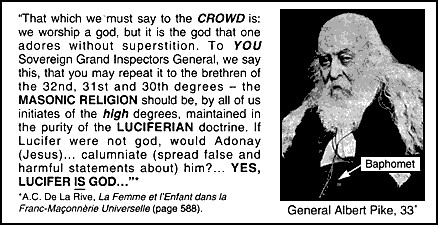
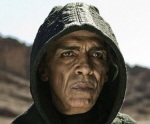

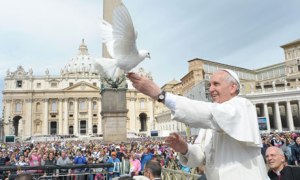

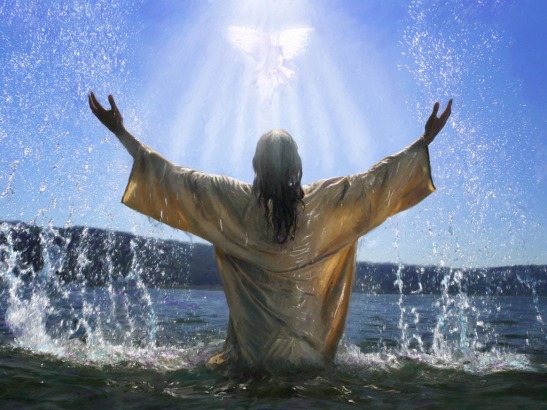

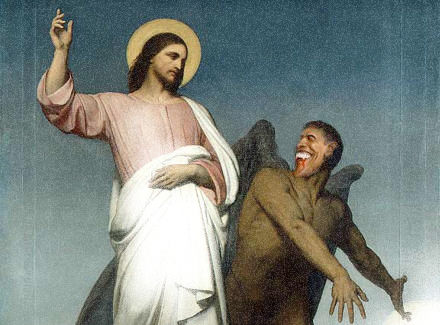
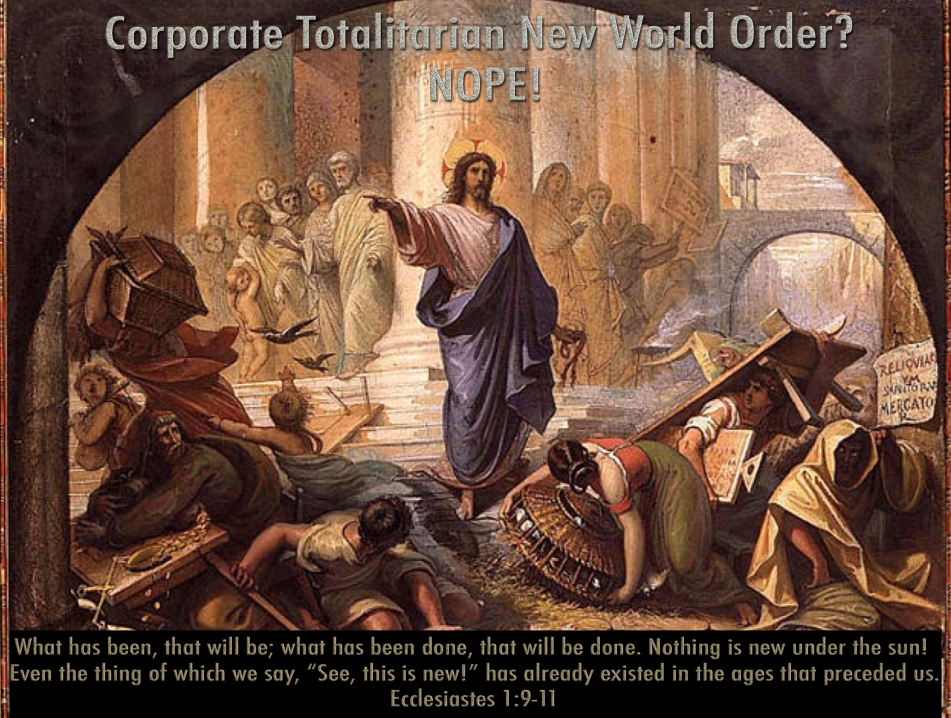
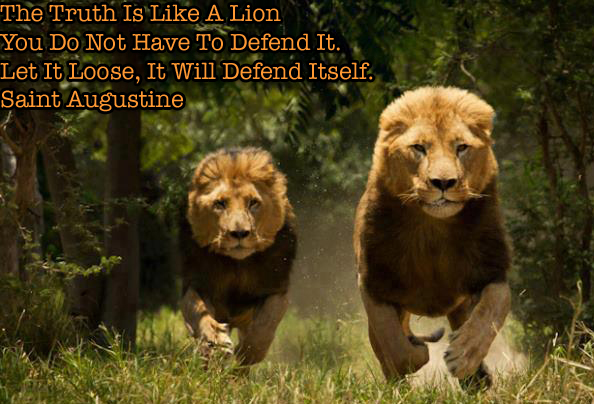












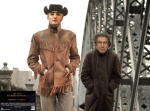




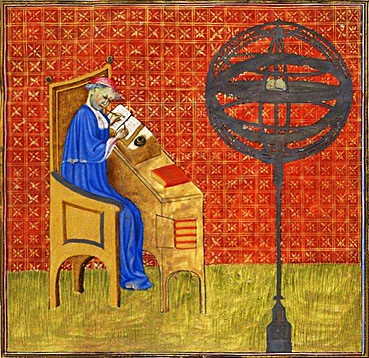

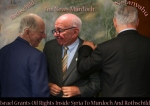





 CHAPTER FIVE
CHAPTER FIVE






